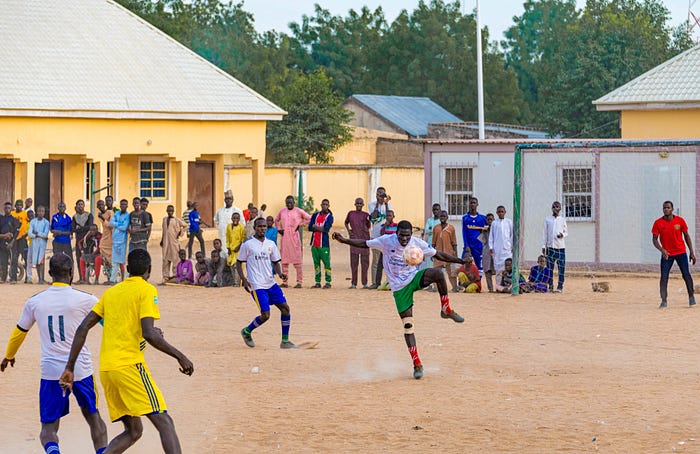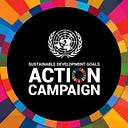How communities around the world are living together in peace
There are many long-drawn conflicts that exist in the world today, and it can sometimes be easier to look at what divides us rather than what unites us. The Sustainable Development Goals are a roadmap how humanity can work together to achieve lasting and sustainable peace for everyone, but this requires a lot of work, commitment, and dedication — not just from governments, but from each and every one of us. Living together in peace is all about accepting differences and having the ability to listen to, recognize, respect and appreciate others, as well as living in a peaceful and united way.
The UN General-Assembly declared 16 May the International Day of Living Together in Peace, as a means of regularly mobilizing the efforts of the international community to promote peace, tolerance, inclusion, understanding and solidarity. The Day aims to uphold the desire to live and act together, united in differences and diversity, in order to build a sustainable world living in harmony.
The Day invites countries to further promote reconciliation to help to ensure peace and sustainable development, including by working with communities, faith leaders and other relevant actors, through reconciliatory measures and acts of service and by encouraging forgiveness and compassion among individuals. Let’s make sure we all live out these ideals in our everyday lives, and educate ourselves about our differences, and teach empathy to those around us.
To celebrate this day, check out 5 ways communities around the world are living together in peace:
1. In Nigeria, football builds friendships across communities

We are more similar than we are different. Sports is a great example of how humans can defy expectations and build relationships. Through football, displaced people and host communities in Nigeria are building friendships and cultivating tolerance.
According to Mohammed, who was forced to flee his hometown, “Right now, I am the highest goal scorer, and I am so happy. People in the community gather to watch the tournaments and deliberate on the match performances, which has helped to strengthen cooperation and build mutual trust.”
2. Women’s cooperatives create ‘family’ bonds amid crisis in Cameroon
Women’s cooperatives in ten Far North communities in Cameroon help members manage finances, increase harvests, get through the lean seasons, and earn a profit in the markets. This resilience-building initiative backed by the World Food Programme and Korea is empowering communities recovering from displacement and enabling new friendships.
“Our resilience is not just in the food we produce, but also in the fact we know we can count on each other,” says Mayramou, who is part of a community effort that feeds the town of Mayo-Moskota, Cameroon
3. Trans women in Mexico help neighbors during pandemic
Trans women in Mexico City show kindness and solidarity with their neighbors by delivering meals to those in need during COVID-19. As in many countries, trans people face discrimination and exclusion in Mexico. Many left school prematurely and some suffered a break with their families and lack that key support network.
Despite the hurdles — old and new — one organization in Mexico City, Casa de las Muñecas Tiresias A.C., is showing that solidarity and help are still possible. It provides shelter for 12 trans women and was named in honor of founder Kenya Cuevas’ friend, a sex worker killed by a client in 2016. That is a risk that many say is ever-present.
“We have to realize that we are sharing a space, a planet. What we should take away from this experience is to be more inclusive, to see ourselves not as men or women, how you dress, or as trans, bi, hetero or polyamorous, but only as human beings,” says Catherine Márquez, the organization’s Deputy Director
4. Polish city gives Syrian poet peace and space to speak out

Syrian poet Kholoud Charaf, granted a two-year residency in the Polish city of Kraków, is making good use of her new position to speak out about the suffering caused by the civil war in Syria and of the refugees who have fled the conflict.
“Refugees are human beings like you. We did not leave our homes, our memories, our childhoods, our language and our culture because we wanted to take your lives away from you. We left because we were forced by war.” -Kholoud Charaf
5. Guatemala’s Indigenous peoples and local communities are leading the way in sustainable forest management

With rampant destruction of forests all over the world, it is not bold to say that the lungs of the Earth are sick. In Guatemala, Indigenous and local community members of the Utz Che’ Community Forestry Association are part of the solution. “Utz Che’”, means “Good Tree” in the Mayan K’iche language. Members include more than 40 communities and farmers’ associations, representing 200,000 people. 90% are indigenous, many of whom faced displacement and killings during internal conflicts from 1960 to 1996.
Utz Che’ is responsible for protecting more than 74,000 hectares of forest in the mountains of Guatemala. They are training thousands of families in better farming practices, and recruit volunteers to plant trees in degraded areas.
While the work is done locally, the world benefits. “We are part of the lungs of the country, of the Earth,” according to former Utz Che’ President Paulina Par
Celebrate the International Day of Living Together in Peace by using our Butterfly Wings on social media! Tag us @SDGAction and we may feature you on our channels — tell the world what you are doing to spark positive change! Don’t forget our hashtag #TurnItAround.
By Christina Samson, UN SDG Action Campaign








